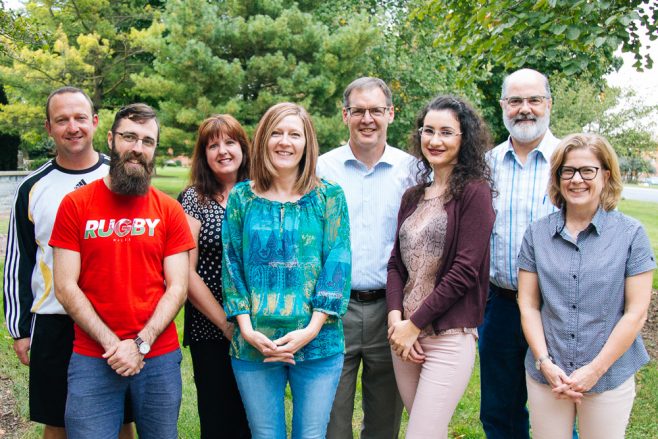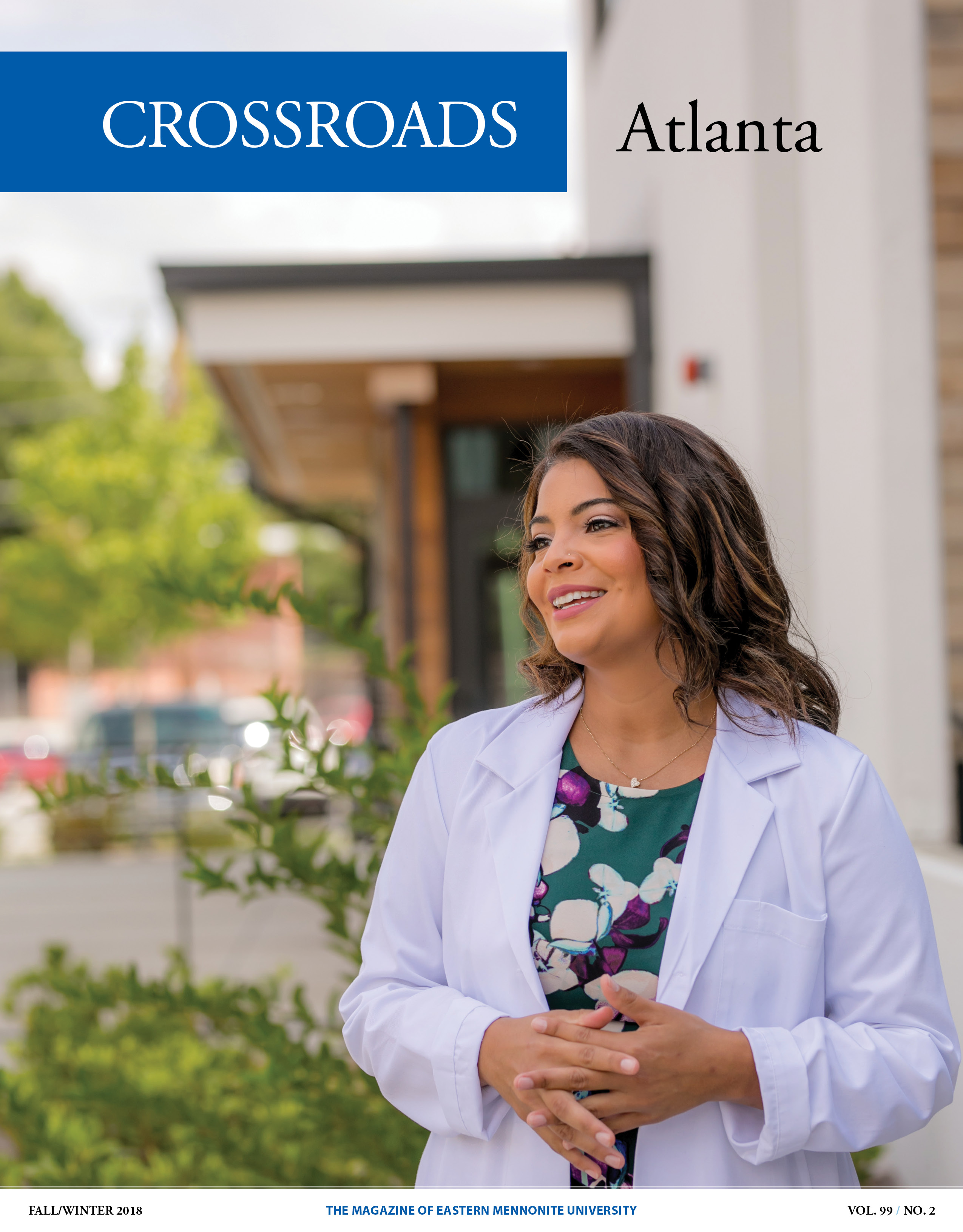
Some of the students and mentors in the 2018-19 two-semester mentorship class taught by Lee Snyder in the MA in organizational leadership program: Back from left, student Sheldon Rice ’02; mentors Tammy Torres, Devon Anders ’88 and Jim Krause. Front row, from left: students Steve Ericksen, Deb Lokrantz, Marilda Bardhi and Sandra Quigg.
A VERITABLE “WHO’S WHO” of executive leadership assembles each year to aid MA in Organizational Leadership (MAOL) graduate students as they expand their management and empowerment capacities in a two-unit mentorship class.
“I’m both grateful for the time and resources these professionals, many of them alumni, are offering our students,” said program director David Brubaker. “And since this is the first time I have joined them, I’m also learning from them myself.”
Mentors and mentees use readings, DiSC and Enneagram activities to explore personality traits, and discuss concepts of leadership through personal stories and reflection. Additionally, the student participates in a 360-degree review to assess personal leadership strengths and areas for improvement through a confidential survey of supervisors, co-workers and those s/he supervises. Over both semesters, the course involves combined classroom sessions and several one-on-one meetings.
This fall, Lee Snyder, president emeritus of Bluffton University, is the lead instructor. A recent guest speaker was attorney and alternate dispute resolution expert Marshall Yoder MA ’10 (conflict transformation). This year’s mentors include Brubaker and the following (all Harrisonburg-based unless noted):
- Devon Anders ’88, president of InterChange, Inc., offering warehousing, logistics and supply chain management;
- Hans Harman ’02, president of Momentum Earthworks;
- Jim Krause, retired corporate vice-president, president and CEO of Sentara RMH, a regional hospital;
- Kara Martin, probation officer in North Carolina;
- Edgar Miller, retired general manager of Truck Enterprises, a multi-state commercial truck dealership;
- Tammy Torres, assistant director at the nonprofit social services agency Empowerhouse in Fredericksburg, Va.
- Wayne Witmer ’88, president of Harman Construction.
Anders and Miller served on the MAOL curriculum advisory council with Sue Cockley, an expert in adult education who was the program’s first director. Now dean of EMU’s graduate school and Eastern Mennonite Seminary, Cockley notes that leadership development has strong similarities to spiritual formation, widely recognized as one of the seminary’s unique curricular foci.
“Becoming a leader is a maturation process that resembles spiritual maturation,’” she said. “This process is the gradual development of emotional intelligence, a deepening understanding of oneself and one’s strengths and weaknesses. Just as a spiritual director can help guide the student to a deeper faith, so can a mentor guide students in this self-knowing journey in order to form them into mature leaders.”
The pairings come about organically. Marilda Bardhi, former CFO of a large construction company in her native Albania, is currently interning with Anders at Interchange. Anders and Bardhi have spent time thinking and talking about cultural differences related to leadership – an intellectual and personal exercise Anders has found beneficial.
Steve Eriksen, director of customer service at Campwise Software, has benefited from Edgar Miller’s mentorship prior to the class. That long-term relationship has helped Eriksen see his own leadership development as a process of authentic transformation. “It’s important to determine who you genuinely are and never stop learning about yourself and others,” he said, adding that Miller has served “as a sounding board for ideas, a motivator for continued growth, and a source of encouragement when difficult situations arise.”
Miller has mentored four students through the program “and learned from all of them.” After more than 40 years in leadership, he enjoys passing on lessons learned and working with his mentees through current issues in their lives by offering “possible solutions or alternatives based on my experiences.” And the discussions sometimes revive forgotten principles of leadership or lead to the exploration of new ones.
“Good leaders never stop learning,” he said – echoing one underlying goal of the mentoring course: that the cycle of sharing and reflecting continue to enrich a lifetime of growth in all who participate.
